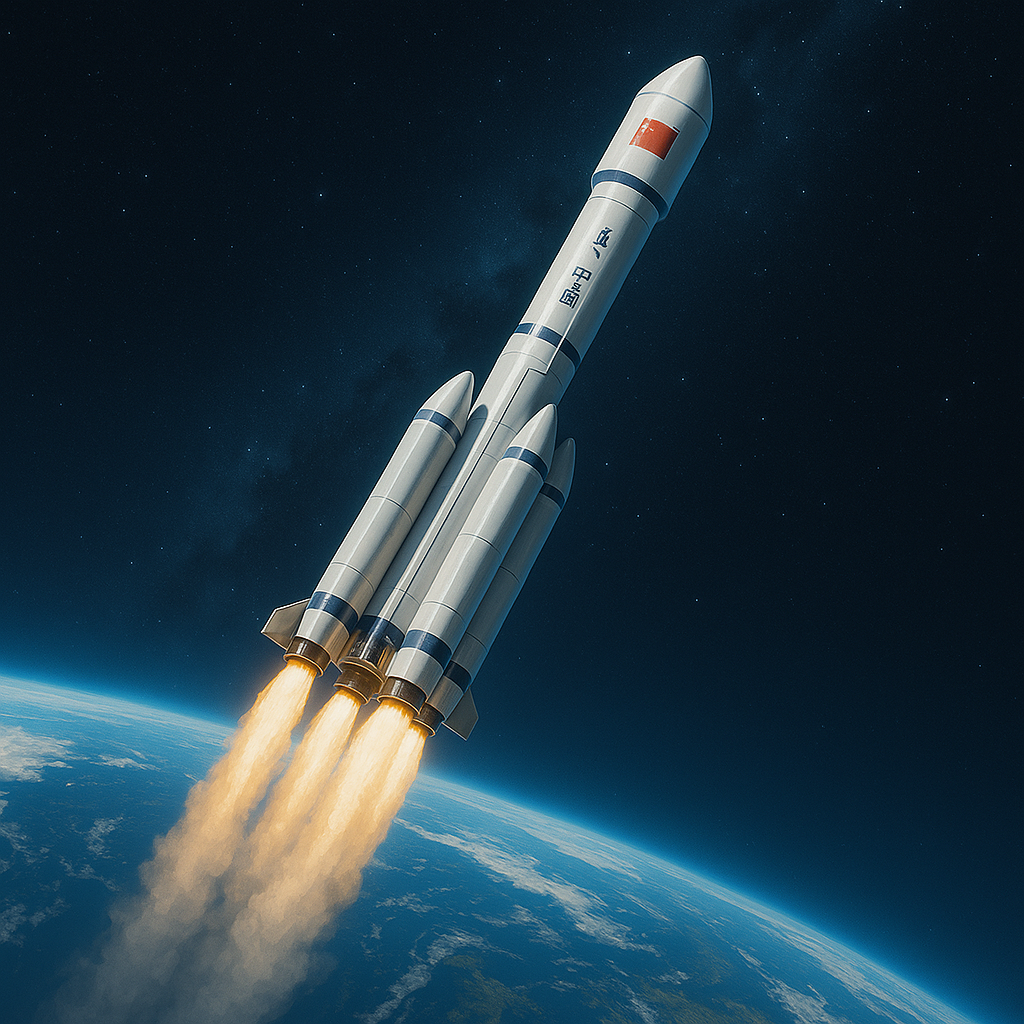By Michał Jabłoński (Editor-In-Chief, Polish Space Industry Foundation)
The year 2025 marks a significant milestone for the Polish space sector. After 47 years the second pole has flown into outer space, as the first Polish citizen in the 21st century, and first pole on the International Space Station (ISS) [1]. Alongside this the dynamic development of the national space sector takes place: Poland works on national Satellite Earth Observation System MIKROGLOB [2], Polish entities works on suborbital rockets: PERUN [3] and ILR-33 Bursztyn (ang. Amber) [4] and Polish start-ups work on inter alia satellite propulsion systems [5]. I wrote on the cruciality of development of domestic technologies in March 2025 for Ad Astra. Center for Space Policy and Law, in the context of war in Ukraine where I highlighted the necessity of providing an adequate legal framework for such activities [6]. Now, with the growing number of space initiatives in Poland (and not only in Poland), the wider presence of space in legal acts is observed. Below I briefly summarise four documents which concern the space issues – the project of Polish act on space activities [7], the project of European Space Act [8], Agreement between Republic of Poland and French Republic [9] and NATO’s Commercial Space Strategy [10].
The draft Polish Act on Space Activities
On 15th May 2025, Polish Government Legislation Centre (RCL) published the draft act on space activities [7]. The act will regulate a number of issues related to space activities such as insurance for space companies, authorization and supervision over non-governmental space entities, space object register and dealing with space debris (look Art. 1); it also provides a number of definitions on terms such as: definition of space object, outer space, space debris or “removing a space object from outer space” [11].
The most important aspect of this act is that it will finally lead to meet the requirements imposed by international law – the obligation to establish a national space objects register arising from the article II of so-called Registration Convention [12] and arising from the article VI of so-called Outer Space Treaty [13] obligation to authorize and continuously supervise non-governmental entities.
The adoption of the draft on space activities should be perceived as a positive despite a few defects of the project which were indicated during the public consultation e.g. Polish Space Professionals Association, Polish Space Industry Association, and ALK Centre for Space Studies pointed out that the draft does not have to include the specific technical standards for space technologies (what is included in art. 7(4) of the draft) [14][15][16]. It should be also noticed that the possibility of authorising the person who is not the employee of the Polish Space Agency to carry out an inspection in a non-governmental entity (art. 34(3)) could also raise some practical concerns.
Further work on the draft should involve closer cooperation with domestic space actors (an example of a form of cooperation could be the conference co-hosted by Polish Space Industry Foundation in Polish Parliament in 2023 during which the entrepreneurs, scientist and politicians met together and were publicly debating on issues related to the space sector). Such actions should provide an outcome acceptable for the space sector in Poland which will not block the development of the domestic space sector and accelerate the rise of new space actors in Poland.
European Union
On 25th June 2025, European Commission (EC) published the proposal Proposal for a Regulation of the European Parliament and of the Council on the safety, resilience and sustainability of space activities in the Union. As EC writes in the proposal, the dynamic development of space activities and accompanying development of legal frameworks leads to fragmentation of legal frameworks related to space activities in the EU [17].
The main goal of the proposal is to provide solutions which ensure a “stable, predictable and competitive” business environment in the common market and safety, resilience and sustainability of space activities within the EU [17]. The so-called EU Space Act aims to harmonise the legal framework related to indicated above issues, which could be perceived as controversial in the view of art 189 TFEU which excludes space policy from harmonisation of the laws and regulations of the EU Member States [18].
International agreements: NATO, PL-FR
The growing importance of the space sector and especially the role of private actors in development of space technologies for security and defence found its fulfillment in the works of NATO Allied Defence Ministers. In June 2025, after recognizing space as a fifth operational domain in 2019 [19] and approving NATO’s Updated Defence Production Action Plan in February 2025 [10], they adopted NATO Commercial Space Strategy (NCSS) [10]. The NCSS is strongly focused on enhancing the cooperation between public and private sector in the field of space technologies and includes three main objectives: (1) leveraging the use of commercial solutions, (2) ensuring continuous access through commercial agreements and (3) enhancing coherence by (1) establishing the commercial interface dedicated to accelerate the adoption and integration of commercial solutions and establishing the NATO Space Capabilities Group to facilitate cooperation within NATO [19].
Alongside the multilateral cooperation Poland is also strengthening its partnership with other countries in the bilateral instruments. As an example the recent agreement between the Republic of Poland and the French Republic could be mentioned [9]. In the agreement the cooperation in the field of space technologies is included in the context of security and defence (art. 4(6)), economic, industrial and digital cooperation (art. 6(8) and higher education, research and technological innovation (art. 11(6))[20].
International agreements covering the issue of space activities and cooperation are important tools for development in a globalised world. A recent increase in the attention paid to enhancing cooperation in space activities should be perceived as a positive phenomenon and we should observe carefully if this cooperation will cause practical changes.
Summary
The importance of space technologies is undoubtedly rising and the legal actions aimed at facilitating cooperation between states, especially in the field of security and defense, are also increasing. One of the most important aspects of IGNIS – Polish astronaut mission is the possibility to conduct the scientific-diplomatic actions by Sławosz Uznański-Wiśniewski on the one hand and to strengthen the position of Poland in the diplomatic relations in the field of space activities on the other. Equally important for the proper position of Poland is to fulfill the international requirements arising from international agreements and ensure the helpful legal framework for space initiatives in domestic law as well as taking action to safeguard Polish national interests as the EU shapes new legislation in the space domain.
Bibliography
[3] https://spaceforest.pl/new-sf-1000-engine-test-perun-rocket-2024/
[4] https://polsa.gov.pl/en/news/the-ilr-33-bursztyn-2k-rocket-reached-space/
[6] https://www.facebook.com/share/p/16Z48g64uR/?mibextid=wwXIfr
[7] https://legislacja.gov.pl/projekt/12397750
[9] https://www.gov.pl/web/premier/przelomowy-traktat-polsko-francuski-podpisany-w-nancy
[10] https://www.nato.int/cps/en/natohq/news_236512.htm
[11] https://legislacja.gov.pl/docs//2/12397750/13127702/13127703/dokument716774.pdf
[12] Convention on Registration of Objects Launched into Outer Space, https://www.unoosa.org/oosa/en/ourwork/spacelaw/treaties/registration-convention.html
[13] Treaty on Principles Governing the Activities of States in the Exploration and Use of Outer Space, including the Moon and Other Celestial Bodies, https://www.unoosa.org/oosa/en/ourwork/spacelaw/treaties/outerspacetreaty.html
[14] point 10, https://legislacja.gov.pl/docs//2/12397750/13127708/13127711/dokument723417.pdf
[15] point 11, https://legislacja.gov.pl/docs//2/12397750/13127708/13127711/dokument723413.pdf
[16] page 3, https://legislacja.gov.pl/docs//2/12397750/13127708/13127711/dokument723403.pdf
[18] https://eur-lex.europa.eu/legal-content/PL/ALL/?uri=CELEX:12016E189
[19] https://www.nato.int/cps/en/natohq/official_texts_190862.htm
[20] Treaty on Enhanced Cooperation and Friendship between the Republic of Poland and the French Republic, PL: https://www.gov.pl/attachment/1ed445df-6fdb-486c-b196-f8ec2fd2c511, FR: https://www.gov.pl/attachment/dec93e3f-bf9d-4361-a3cf-ca62de3ef867


